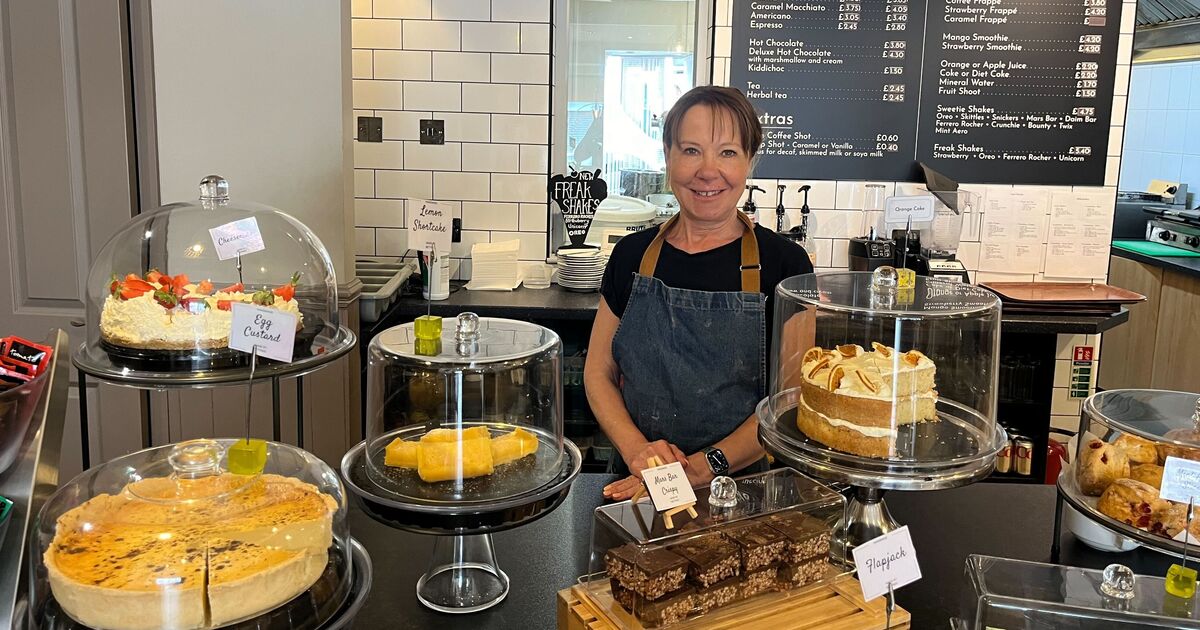As you first drive into the former mining town of Ashington it looks neat, with lots of green space and freshly cut grass.
But many properties in the struggling area look well past their best, with one boarded up house even daubed with “peado” and “nonce” in giant letters.
With some houses being sold for as little as a staggeringly low £15,000, you notice a lot of “sold” signs.
Are things therefore on the up for what once was the world’s largest coal-mining village?
The wider Northumberland area is world famous for its stunning beaches such as Bamburgh and well-heeled market towns – with one the UK’s most beautiful, Morpeth, just a few miles away.
Ashington, however, seems like an anomaly – and according to tongue-in-cheek YouTube channel Turdtowns it’s the worst place to live in the region. With a population of about 28,000, Turdtowns stated “this place hasn’t been relevant for at least 60 years”.
But on a more serious note it also struggles with crime and is the second most dangerous medium-sized town in Northumberland.
Pensioner Ian Best, 78, who works at his son’s firm N.B Furnishings, thinks his town has been abandoned.
He said: “There’s nothing much good at Ashington at the moment – but it’s a sign of the times.”
Ian also admitted that crime and drugs ravage the area.
He said: “There are a lot of drugs and thieves – we have steel shutters on the business [but they target] older folk, break in, stealing things. It’s a big drug area.”
Ian says he’s “barely making ends meet” with his £159 a week pension – and that the people of Ashington are struggling with higher living costs.
He added: “The only way to get it going again is for the Government to put more money into the area – and give more money to people because they are struggling.”
But Dawn Duddridge, who is a sales negotiator at local estate agents Rickard, says that despite the obvious challenges, business is booming.
Properties are listed from a guide price of just £15,000 on property website Rightmove. However, Dawn explains that in the town centre “old colliery row homes” sell for £50,000. More expensive but still wildly below the national average property price in the UK of £282,000.
And it seems as though homebuyers and investors are now taking note of the rock-bottom prices.
She said: “To be honest this last week it’s been crazy busy – it’s been chockablock. Properties don’t stay on the market very long – a couple of weeks.”
Dawn thinks the pick up is due to a shortage of houses on all levels of the property ladder and also the end of election uncertainty.
Business owner Suraj Singh, 24, is from a posh area called Gosforth, in Newcastle. He has taken advantage of the cheaper property prices – which in his case means low commercial rents. He runs a vape shop in the town centre.
He said: “I saw it was [up for rent], did a little bit of research and saw it might have potential.”
Suraj added: “It’s a nice place. There are a lot of shops around and a lot of independent businesses. I think it’s an area on the up.”
Another major plus point for the town is also on the horizon as a new train station and train service – The Northumberland Line – will link the town with the bustling nearby city of Newcastle in just 35 minutes. The project is costing £166m.
Popping into a nearby coffee shop, a gaggle of women are more than happy to share their thoughts on their town.
One, a retired supermarket worker who didn’t want to be named, said she’d rather cheaper property prices were kept on the down low.
The 76-year-old, who has lived in Ashington all of her life, said: “If the property prices go up then it’s harder for young people.
“These people from the south have plenty of money, up their offers and gazump the young ones.”
However, she is concerned about the town centre that has seen scores of big high street names disappear, like many towns and cities across the country. She also worries about jobs for the younger generation.
She said: “People need jobs. Kids are walking the streets on these bikes or scooters, flying past.”
Nurse practitioner Jane Stirton, 57, who is also from the town, is married and has two children.
She said: “Property prices are low because there is a lot of poverty and people can’t afford to get on the property ladder and there’s not a lot of job opportunities.”
Carol Gatenby, 59, has run the immaculate coffee shop for 26 years and agrees.
She said: “It has changed so much – I think it’s got challenges as a lot of people are unemployed.”
Claire Kelly, 46, a nursery nurse lives in the town centre and currently rents a property – and believes prices are low due to a “bad reputation”.
But she said: “It’s not a bad place to live.”
And the good news for Claire is that the cheap property prices could mean that in the not too distant future she could finally reach her goal of owning her own home.
She added: “I would love to own my own property and here it could be achievable.”












